News
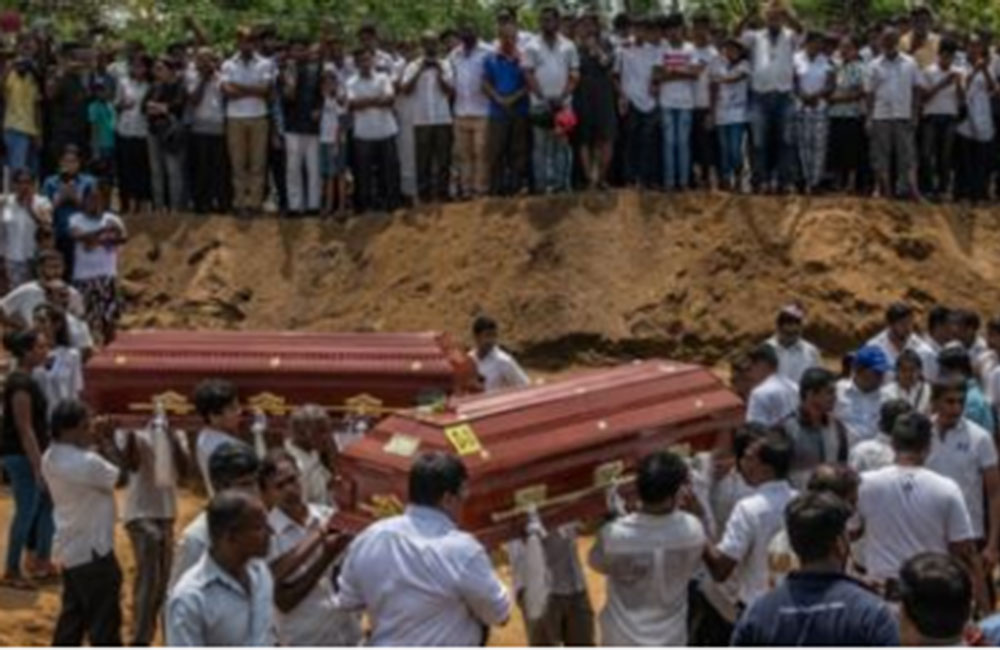
Sri Lankan mosques refuse to bury bombers
The All Ceylon Jamiyyathul Ulama (ACJU), the apex body of Sri Lankan Muslims, said on Thursday that mosques will not bury the bombers.
Additionally, Muslims have also been asked to avoid Friday prayers, while the women have been asked to avoid wearing a burqa.
“We advise that in the prevailing situation, our sisters should not hinder the security forces in their efforts to maintain national security by wearing the face cover (niqab)", the ACJU said.
Whereas, Minister for Muslim Religious Affairs Abdul Haleem Mohammed Hashim called on Muslims to not attend Friday prayers.
“As a sign of solitary with the Catholic community and a show of protest against the barbaric act of the ruthless terrorists, I appeal to my Muslim brothers to avoid gathering for congregational prayers (on Friday) and to pray at home instead, for peace and security of our motherland", he said in a statement.
“We stand with Christian brothers and sisters during their time of grief,” the Minister added.
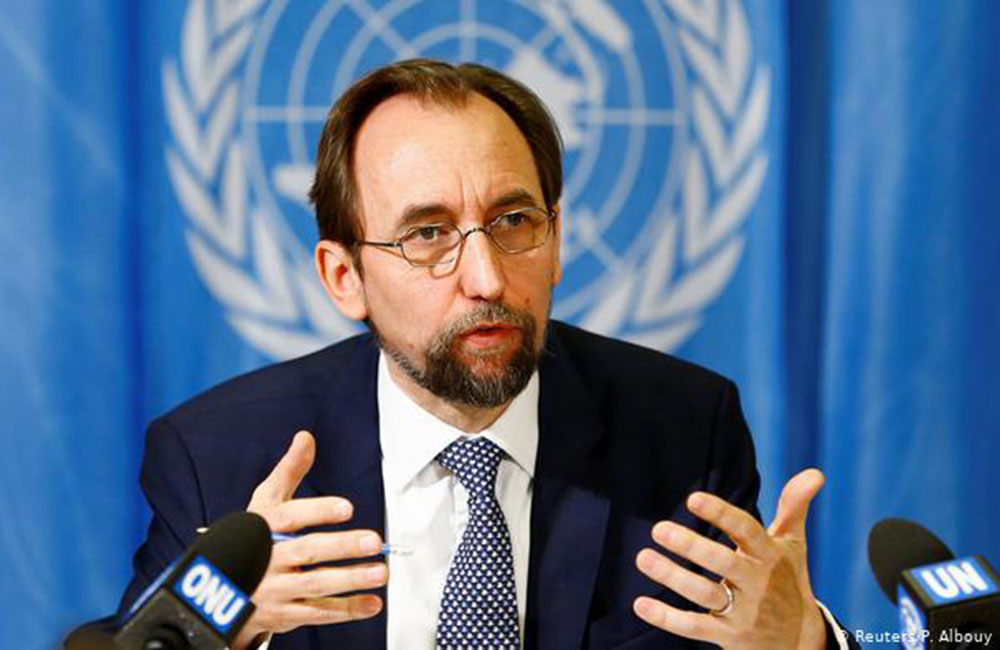
Suspicions over Easter bombings and upcoming election?
The former United Nations High Commissioner for Human Rights, Prince Zeid bin Ra'ad al-Hussein in a tweet on Monday has pondered about a possible connection between the deadly Easter attacks that resulted in the deaths of over 350 people and a possible upcoming election in the country.
The former Human Rights chief has raised the issue as to who would stand to benefit from such an attack.
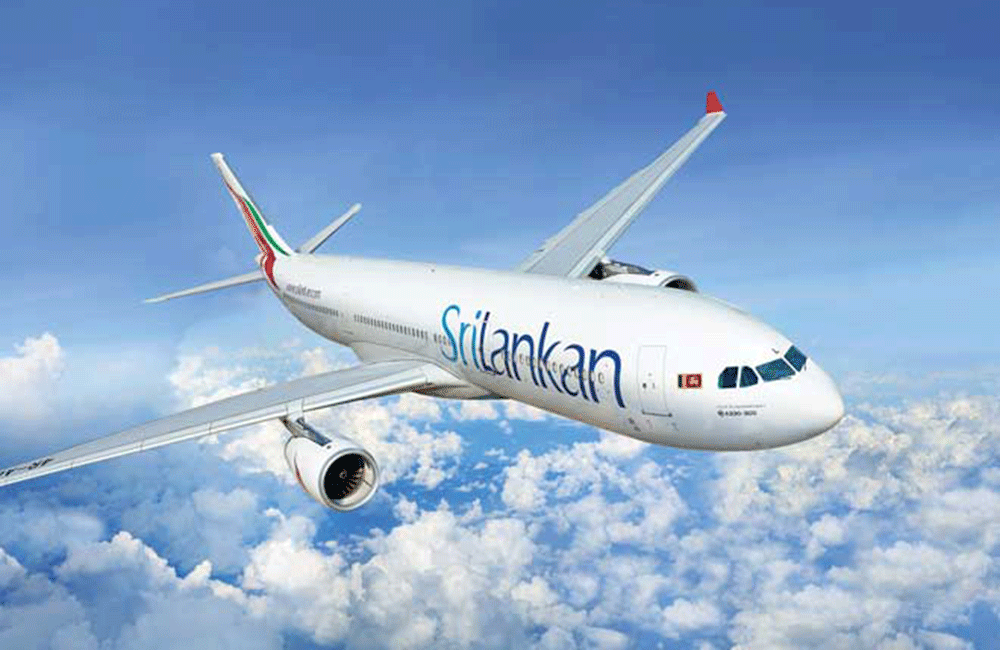
Easter Sunday Attack: 3 ‘SriLankan’ employees arrested!
Authorities have arrested 3 members attached to the Sri Lankan Airlines flight crew for questioning with regard to the Easter Sunday attacks
They have been arrested on a tip-off that they maintained a close relationship with those who had carried out the suicide attacks.
Accordingly, they have been removed from the flight services, today.
Meanwhile, it was reported that four other SriLankan flight crew members have also received complaints.
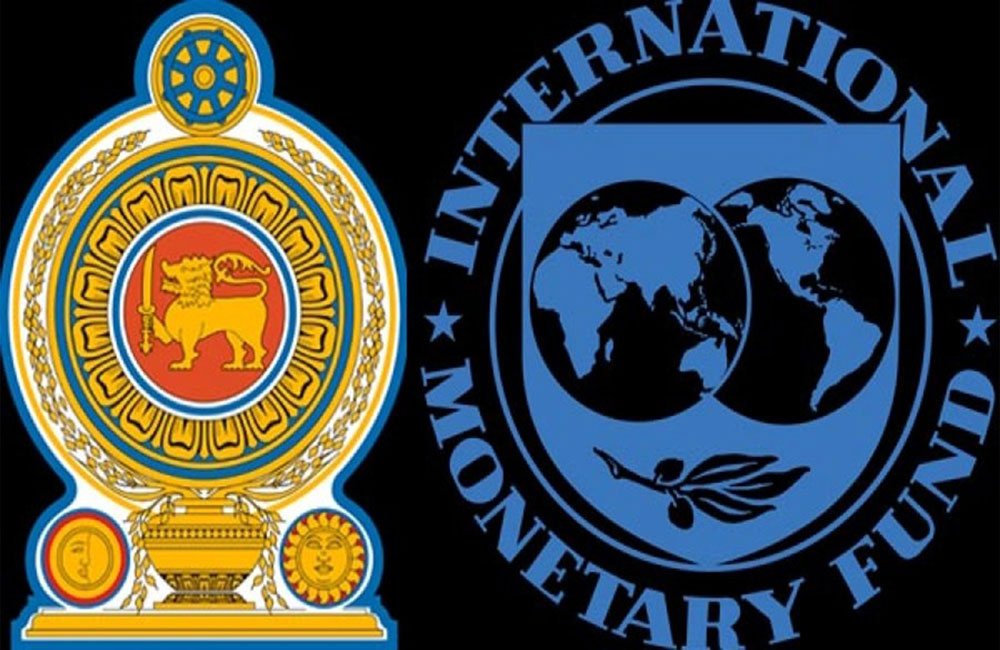
Sri Lanka set to secure crucial IMF extension in blast aftermath
An expected extension of Sri Lanka’s lending arrangement with the International Monetary Fund should give a critical cushion to the economy in the aftermath of the Easter Sunday terrorist attacks, a fund official said.
“This will provide additional time to the authorities to anchor macroeconomic stability and complete their economic reform agenda,” Manuela Goretti, IMF mission chief for Sri Lanka, said in an emailed response to questions.
In the wake of the attacks, “initial financial market pressures seem to have been contained,” while “decisive policy and security measures by the authorities” will be needed, especially to secure the tourism industry that makes up 5 percent of the economy, said Goretti.
The IMF’s executive board is set to decide in mid-May on a pending approval for an extension of Sri Lanka’s aid program to June 2020. Sri Lanka secured a staff-level agreement from the IMF in March to extend a $1.5 billion lending facility for an additional year, and days later Sri Lanka tapped international markets via a $2.4 billion bond sale to cover 2019 debt obligations.
Sri Lanka’s central bank governor, Indrajit Coomaraswamy, said a day after the attacks that Sri Lanka is in a “good position” to meet debt obligations.
The fifth review of the IMF program stalled last year amid a political crisis. Sri Lanka has made “important progress” under the arrangement with the IMF since mid-2016, including tax policy changes, strengthening social safety nets, and its transition to inflation targeting, said Goretti.
Good Balance
“The 2019 budget approved in early April strikes a good balance between advancing revenue-based fiscal consolidation, which is important to shore up market confidence given Sri Lanka’s high debt and refinancing needs, while making space for macro critical capital and social spending and business friendly tax measures,” she said.
Goretti echoed comments by Managing Director Christine Lagarde in condemning the attacks and offering condolences to the victims of the bombings.
The Easter Sunday bombings that tore apart the Shangri-La hotel, two nearby luxury hotels and three Christian churches killed 359 people including foreign tourists from about a dozen countries.
In the aftermath of the war, annual economic growth rates repeatedly topped 8 percent on the back of easy credit and pent-up demand. Tourist arrivals increased five-fold since 2009 to more than 2.3 million last year, while foreign direct investment reached nearly $1.4 billion in 2017 -- about seven times greater than in the early 2000s.
(Bloomberg)
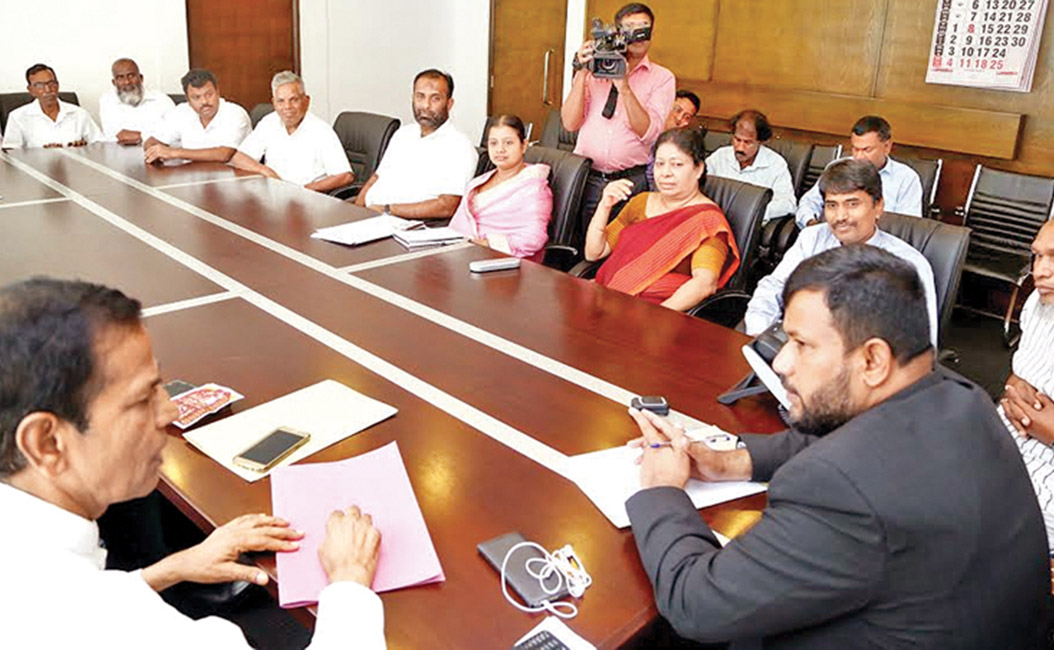
Rishad slams accusations linking him to extremist group
Speaking in Parliament on Wednesday, Minister of Industry and Commerce, Resettlement of Protracted Displaced Persons and Cooperative Development, Skills Development and Vocational Training, Rishad Bathiudeen pointed out that any Industry and Commerce Minister has to meet business and trade representatives for trade related issues.
“Any Industry and Commerce Minister meets business and trade representatives for trade issues. As the Minister of Trade, I too meet business and trade representatives on a regular basis,” the Minister said.
“I strongly condemn such false accusations but sadly people like me who have always been opposed to terrorism are now being accused of having links with terrorists,” the Minister said.

The official photo released to the press on 2 June 2017 of Minister of Industry and Commerce Rishad Bathiudeen’s June 1, 2017 official meeting with the Colombo Traders Association’s (CTA) Secretary Mr. Suriyar (at left- also Chairman of Sooriyan Traders ) and Chairman of CTA YM Ibrahim (Chairman, Ishana Exports Pvt Ltd –seated at far right) at the Ministry premises, Colombo 3. Seated second, third and fourth from right were officials of Ministry of Industry and Commerce, while seated fifth to ninth (at right) were other representatives from CTA.
“I met with Ibrahim Hajiar, the Chairman of Colombo Traders’ Association (CTA) along with other CTA representatives at the Ministry to discuss matters pertaining to certain supply issues that were officially submitted to me,” he said.
The Minister added that there could be no political campaign worse or cheaper than accusing him of terrorist links over a photo of an official meeting.
The Minister also said that the law should be strictly enforced on the terrorists and their organisations that were responsible for the Easter Sunday attacks.
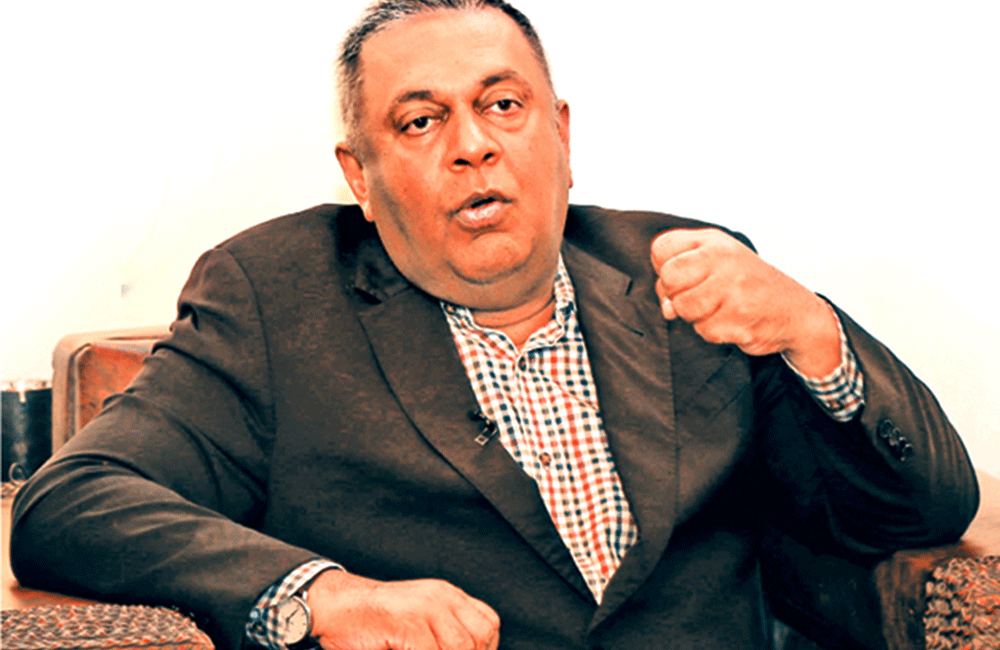
Sri Lankan economy resilient enough to withhold bombings: Mangala
The government had laid a sound foundation for the economy to withstand shocks of the nature that we faced on Sunday even though it could affect the tourism industry, Finance Minister Mangala Samaraweera said speaking in parliament today.
Full Text of Finance Minister's statement;
"This is a time when our nation which was emerging from conflict and beginning to work together for a brighter and more prosperous future for all, has been shaken to its very core. 359 persons have been killed, 45 of them children. Over 500 have been injured.
I offer my condolences to all those who have suffered loss and anguish as a result of the brutal and senseless violence unleashed by terrorists on Easter Sunday at churches and hotels in my country. My thoughts and prayers are with each and every individual who is grieving. And I pray that each one of us – each one of us in this House and each and every citizen of our nation, finds the strength and wisdom required to work with determination to stand together, undeterred by those who seek to divide us, and make us become so consumed by hatred, anger, and vengeance that we lose our resolve to work together to build a reconciled, peaceful, stable, and prosperous nation for all.
In the midst of the tragedy we experienced on Sunday, we have seen many acts of heroism.
Parishioners and workers, who risked everything to rescue victims.
People who ran to help and rescue victims instead of running away to save their own lives.
The ultimate sacrifice paid by brave policemen who acted to prevent more crimes and apprehend perpetrators.
The devotion of health professionals, who faced the unimaginable and unexpected, providing the best support for each person at their most vulnerable, irrespective of race, ethnicity, gender or age.
Goodhearted people who reached out to help those in need in numerous ways, cooperating with law enforcement authorities and conducting themselves with restraint, tolerance and patience.
- ·Journalists, media personnel and media organisations who reported the truth in a responsible manner without engaging in sensationalism; and those committed individuals who painfully went through information especially on social media to separate the truth from the fake and inform the public.
The heartwarming gesture of many people flocking to donate their own precious blood to save the lives of others that were unknown to them – people they have never met or spoken to.
This is the goodness of our nation – our citizen heroes who did not hesitate even for a moment to check who the victim was in order to help. They did not wonder “is my blood from this or that community?” Blood is not Buddhist, or Muslim, or Christian or Hindu! Blood is what reminds us of our common humanity.
In our very lifetime, we have seen the blood of our own horribly spilled, in acts of hate, but in the last few days, we have also seen it generously shared, in an act of love and compassion.
Our economy was on a steady path of recovery following a series of natural disasters in the form of droughts and floods in 2016/2017, and a man-made disaster the political crisis of 2018.
We had stabilized the economy as inflation was brought down to 2.9% by March 2019, the trade deficit declined to its lowest level in over 5 years in February, accordingly the rupee has appreciated by 4.5% - the 3rd best performing currency in the world in 2019.
Our foreign reserves stand at US$ 7.7 billion - covering over 4 months of import requirements. Interest rates have declined by over 100 basis points this year as fiscal consolidation delivered results with a 0.6% primary budget surplus in 2018.
It is clear Honourable Speaker that we had laid a sound foundation for the economy to withstand shocks of the nature that we faced on Sunday. Nonetheless, there will be an impact on the tourism sector even though it is now off-season.
Our tourist industry has had long experience of protecting our visitors even through a 30-year war, and there is no doubt the sector will bounce back. We have taken significant measures to support tourism through policy interventions in the budget, and also outside of the budget such as the visa waiver. We will discuss with the industry to identify further measures to support them through this challenging period.
We could also see some stresses in FDI and portfolio investment in the short term. In both instances, I urge investors to focus on the macroeconomic fundamentals which are, as I have outlined, very sound. Sri Lanka’s investment proposition remains very compelling.
We have taken pro-active measures to refinance external debt in the first quarter of this year, and have already completed large external debt repayments in January and April.
This is NOT the time to point fingers. This is NOT the time to score political points and manipulate the emotions of our people by misleading and confusing them. This is the time to introspect.
Our own citizens, Hon. Speaker, with external assistance and influence, have caused the death and destruction of their brothers and sisters. Though the violence unleashed on Easter Sunday is unprecedented in scale, this is not the first time that our own have killed our own. This is not the first time that our own have taken arms against our own. This is not the first time that our own have caused the shedding of blood of our own. Our nation has seen cycles of violence ever since Independence.
We must indeed investigate how and why there was a failure to act on intelligence reports. Why there was a failure to inform churches and hotels in advance that there were reports of plans to carry out attacks. We must investigate why human beings were placed in harm’s way without making even a single attempt to prevent the attacks from being carried out.
However, Hon. Speaker, it is important that we act with responsibility. It is important to realize that not all problems can be solved with guns and bombs and by changing a few individuals. There is a sense of sophistication that is required to deal with sensitive issues of this nature – countering violent extremism and radicalization require careful and intelligent approaches.
Our nation faces the challenge of how to break the cycles of violence that our nation plunges into every few years since Independence.
We all know the story of ‘Angulimala’. He was an innocent and gentle child. So much so that he was named “Ahimsaka” at birth. Yet, the people he came to associate in society made him a killer. No child is born a killer. No child is born, bearing the objective or ambition of becoming a killer in his or her mind. Therefore, if a child becomes a killer, society cannot claim it has nothing to do with the evolution of an innocent child into a mass murderer. In the globalized world we live in, the influences that one is exposed to are many. Therefore, the need for introspection, the need for collective action, and the need for each individual to act with responsibility becomes far greater.
Citizens must not take the law into their own hands. Yet, each of us as citizens has a duty to preserve the peace. We must take great care to bring to the notice of law enforcement authorities, details of those who may be brainwashed into causing harm. We must learn from other countries that have been dealing with similar situations, regarding best practice, including rehabilitation and counseling, and capacity building among communities for psychological support.
It is also critical, Hon. Speaker, that we look at this in a wider context including education reform. Content of education from pre-school onwards as well as the structure of our schools are worth being revisited. I am no expert. Yet, I cannot help but wonder whether segregated schools in our country may be causing incomprehensible harm. Moreover, the exam-oriented focus of curricula needs to be reconsidered at the earliest possible. Each of our religions has such valuable life lessons to teach us. Lessons that help us cope with the stresses and strains of life. Yet, the way religion is taught in an exam-oriented and compartmentalized way and the lack of emphasis on universal values make it impossible for children to gain real and meaningful benefit for their personal growth, or to understand or respect other religions, practices, beliefs or diversity, and overcome fear.
Lastly, Honourable Speaker, we have ignored for far too long much needed transformational reform and development of the security sector that should have been undertaken soon after the end of the conflict in 2009, to ensure that Sri Lanka gains for itself a respectable and advantageous position in the spheres of national socio-economic development and foreign affairs, ensuring sustainable security through the ‘primacy of law and order’. These include:
- review and rationalization of major security legislation;
- review, re-orientation and development of national security and defence sectors; and
- review, reorientation and development of the public security and law-enforcement sector.
I hope and pray that at least now, at this time of tragedy, we realize the importance for Sri Lanka to transcend partisan considerations, whether political, administrative or functional, and introduce lasting ‘institutional cohesion’ to its security sector and associated processes. Policies and plans should be geared towards building and maintaining the right security instruments and capabilities – appropriately resourced, specialized and economically focused on their respective tasks without duplication, but with maximum unity of effort.
All problems cannot be resolved through fire-power. Securing our common future – the future of each citizen and individual who lives in this common space that we share and call our home – requires sustained socio-economic development guaranteed through sophisticated strategic cooperation, diplomacy, intelligence, policing and law enforcement, infrastructure protection, territorial surveillance and border management. The primary security instruments of the future, Hon. Speaker, are not firepower or manpower. Sadly, we have not reflected on these aspects with due seriousness and this is what is made most apparent in the tragedy of Easter Sunday. I hope we do this now, without getting bogged down in pointing fingers and conjuring up conspiracy theories.
We must take a clear decision about the society we want to be. The choices are stark. Do we resign ourselves to live in segregated segments, in shreds of society, talking only with those who are similar, hiring only those in our group, befriending only the right kind of person, and creating fear against others? Do we resign ourselves to an uneasy coexistence, or do we aim for the more ambitious goal of reconciliation?
The challenge is to evolve in our nation, a more profound sense of belonging: one in which we do not merely tolerate the other, but we celebrate their differences, their culture, their language, their identities. The challenge is the paradox of being different and profoundly equal: equal in humanity, equal in individual rights, equal in our love to this our Mother Lanka.
That challenge, Hon. Speaker, should be our common, obsessive dream: the promise of a Sri Lanka in which children of all communities play and grow together; one in which no one feels discriminated because of their language, identity, gender or beliefs; one in which everyone feels the pain of another citizen, and lives and grows in compassion and solidarity; where there is absolutely no space for recurrence of violence. Truth-seeking, justice, and reparation become ever more important in this context. We must continue to strengthen our democracy and work on enhancing strategic cooperation with friendly nations in the region and beyond whose support is essential to Sri Lanka’s progress as a peaceful, stable, prosperous and democratic nation where rule of law and fundamental rights of all our citizens are secured."
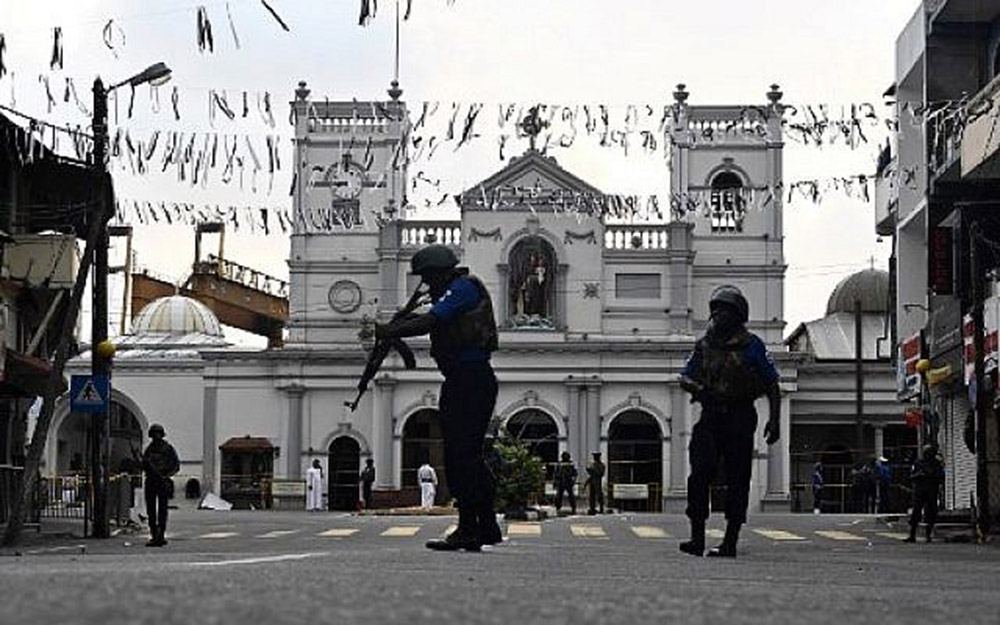
‘High and concrete’ terror threat in Sri Lanka: Israel National Security Council
The Israel National Security Council’s Counter-Terrorism Bureau on Thursday (25) issued a warning for travel to Sri Lanka, saying there was a “high and concrete” chance of a terror attack, four days after the Easter Sunday suicide bombing attacks that killed more than 350 people in and around the capital of Colombo, The Times of Israel report.
The security agency said Israeli travelers should leave the island as soon as possible, and those planning to visit were advised to cancel their trips
The announcement means the country now bears the security agency’s second-highest warning. The decision to issue the warning was made after consultations with security officials and the Foreign Ministry.

Pakistan PM telephones Ranil, offers assistance
Pakistan Prime Minister Imran Khan has today telephoned Prime Minister Ranil Wickremesinghe and reiterated Pakistan’s offer of assistance to Sri Lanka towards counter-terrorism measures, foreign media reports state.
While strongly condemning the terrorist attacks that took place on Easter Sunday, Khan has reportedly conveyed his heartfelt condolences to the bereaved families and profound prayers for the speedy recovery of the wounded.
The Pakistani Prime Minister has further stated that the people of Pakistan were deeply grieved over the loss of precious lives and stood with their Sri Lankan brethren at this hour of grief.
“Being the worst sufferers of terrorism, we can feel the pain of our Sri Lankan brethren,” he has added.
Khan has observed that terrorism knew no boundaries, no religion and threatened the peace of the entire region and the world.
Khan has noted that Pakistan condemned terrorism in all its forms and manifestations and would continue to provide every possible support for the elimination of this menace.
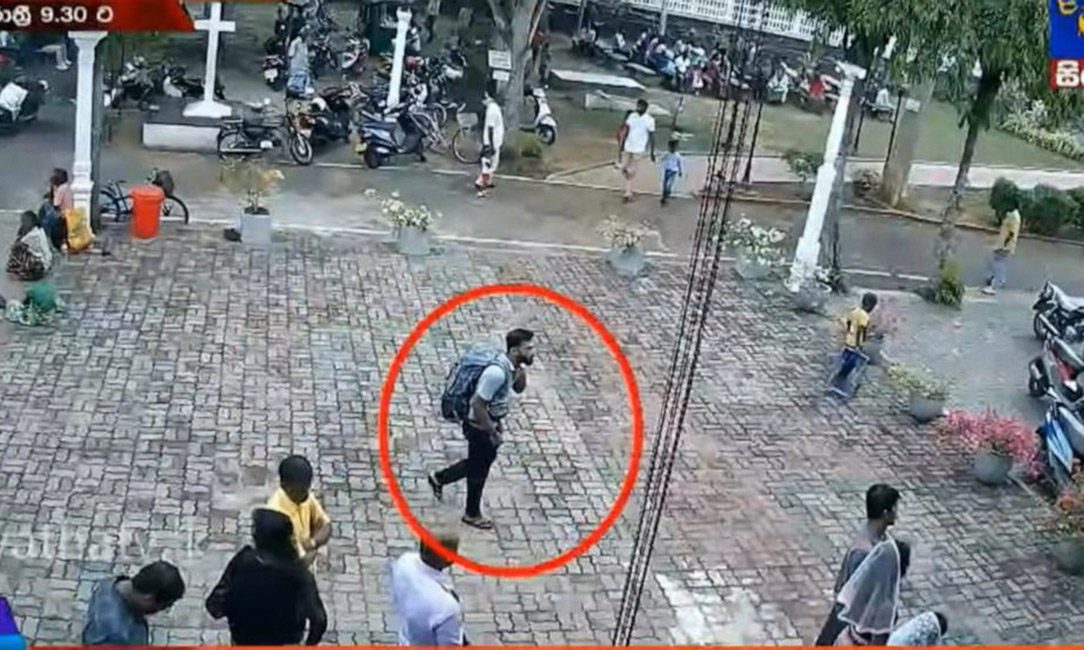
Bombers who carried out attacks were 'well educated'
A husband and wife. A pair of brothers from a wealthy, upper-class family. A man with a law degree. Another who studied in the United Kingdom and did postgraduate work in Australia, before coming home to settle down in his native Sri Lanka.
Those are the profiles emerging Wednesday, according to Sri Lankan officials and local media, of the suicide bombers who killed more than 350 people in sophisticated, coordinated attacks on churches and hotels there on Easter Sunday. If the Islamic State's claim of responsibility is true, it would be the group's deadliest terror attack.
Speaking at a briefing on Wednesday, Deputy Defense Minister Ruwan Wijewardene said most of the attackers were "well-educated" and came from "middle-class" backgrounds.
"We believe that one of the suicide bombers studied in the U.K. and then maybe later on did his postgraduate in Australia, before coming back to settle in Sri Lanka," he said.
The U.S. ambassador to Sri Lanka, Alaina Teplitz, called it "incredibly tragic" that intelligence warnings about the suicide bombers' plans appear to have been missed.
"Clearly there was some failure in the system," Teplitz told reporters in the capital Colombo.
The FBI and U.S. military are helping to investigate, she said. While local officials admitted prior warnings had been received, the information did not reach the highest levels of Sri Lanka's government, lawmakers said. Teplitz said U.S. officials had not been made aware either.
Sri Lankan President Maithripala Sirisena has vowed to replace top defense and intelligence officials, and local media are reporting he has asked the country's police chief and defense secretary to resign.
In parliament, lawmakers traded barbs Wednesday, accusing one another of playing politics with intelligence, and even of supporting a domestic Islamist group that was virtually unknown before this week.
Information coming from lawmakers and government officials since Sunday has often been contradictory. Even before the attacks, Sri Lankan politics were in a state of disarray.
Last October, Sirisena sparked a constitutional crisis by firing Prime Minister Ranil Wickremesinghe, and later appointing a former president and strongman, Mahinda Rajapaksa, to replace him. That move was eventually rejected by Sri Lankan courts and many lawmakers, and the original prime minister was eventually reinstated. But Sirisena held control of the country's security apparatus and police — a decision that sparked anger among opposition lawmakers.
"By unlawfully holding on to the law-and-order portfolio, the president has now become the first person who should take responsibility for these attacks that could have been prevented," lawmaker M.A. Sumanthiran, who belongs to an opposition Tamil party, told parliament Wednesday.
The attacks hit almost 10 years to the day since the end of Sri Lanka's 26-year civil war. It was a secular, ethnic conflict that left several tens of thousands dead. At its height, suicide bombers struck many times in the capital Colombo. But the country has, until now, had no known Muslim extremist movement.
On Wednesday, police spokesman Ruwan Gunasekara told reporters that there were actually nine suicide bombers, not seven, as officials had previously said. The female bomber was the wife of another bomber, he said. She exploded herself along with her two children as police moved in to search a house they were in, in the aftermath of the attacks, Gunasekara said. Three police officers also died in that blast.
At least 60 people have been arrested so far, Gunasekara also said.
Another official, defense minister Ruwan Wijewardene, on Wednesday backed off claims that the Easter attacks were in retaliation for shootings last month at mosques in Christchurch, New Zealand. He told reporters that the mosque attacks may have been a motivation but that there was no direct evidence of that. (NPR)
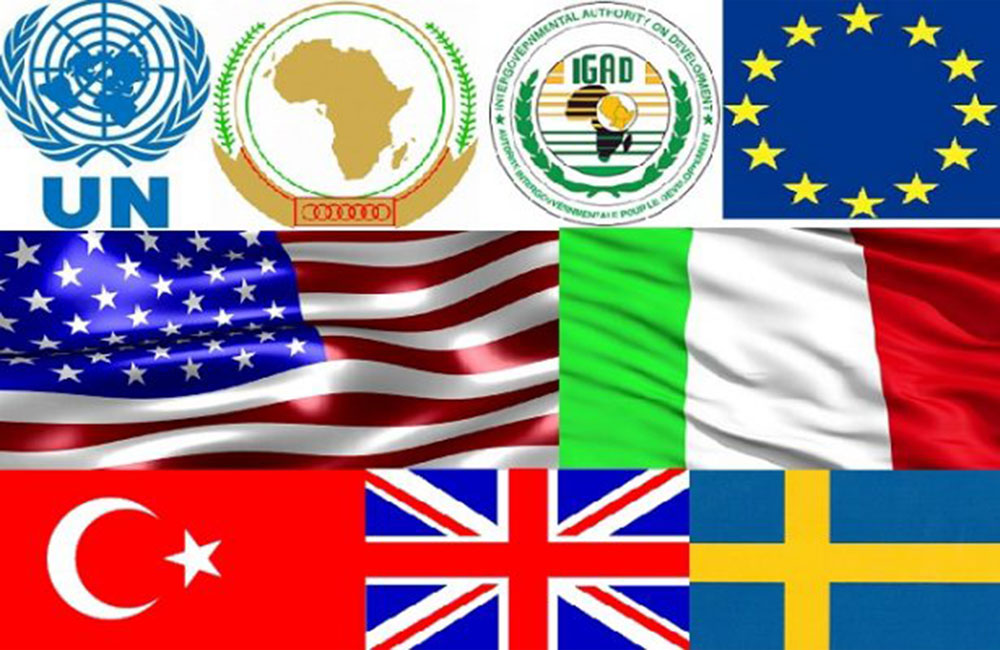
International community to assist Sri Lanka
The international community has come forward to assist Sri Lanka in carrying out the operation to crack down on the Islamic extremist group that carried out a series of barbaric attacks on churches and five star hotels on Easter Sunday.
Foreign investigative institutions like Interpol, FBI of the US, Scotland Yard of the UK and Australia's anti terror investigators have already arrived in Sri Lanka to assist local authorities to crack down on the network that carried out the Easter Sunday attacks.
Sources from the Foreign Ministry said that these foreign investigators have arrived in the country to assist local investigators at the expense of their respective governments.
"This is a gesture of pure goodwill since their expertise is being provided to Sri Lanka at no cost to the Sri Lankan government," the source said, adding that it is an indication of the country's standing before the international community and the success of the country's foreign policy.
Responding to the criticism leveled by the 'joint opposition' led by former President, Opposition Leader Mahinda Rajapaksa that the government had failed to handle the current crisis, the source noted that the country has received unconditional support from the international community at this juncture due to the government's foreign policies and the situation would have been quite the opposite had the Rajapaksa led illegal government was in power at the time of the attacks.
"Had the attacks happened during the 52 day illegal government, the international community that did not recognize the administration would not have come forward to support," the source added.
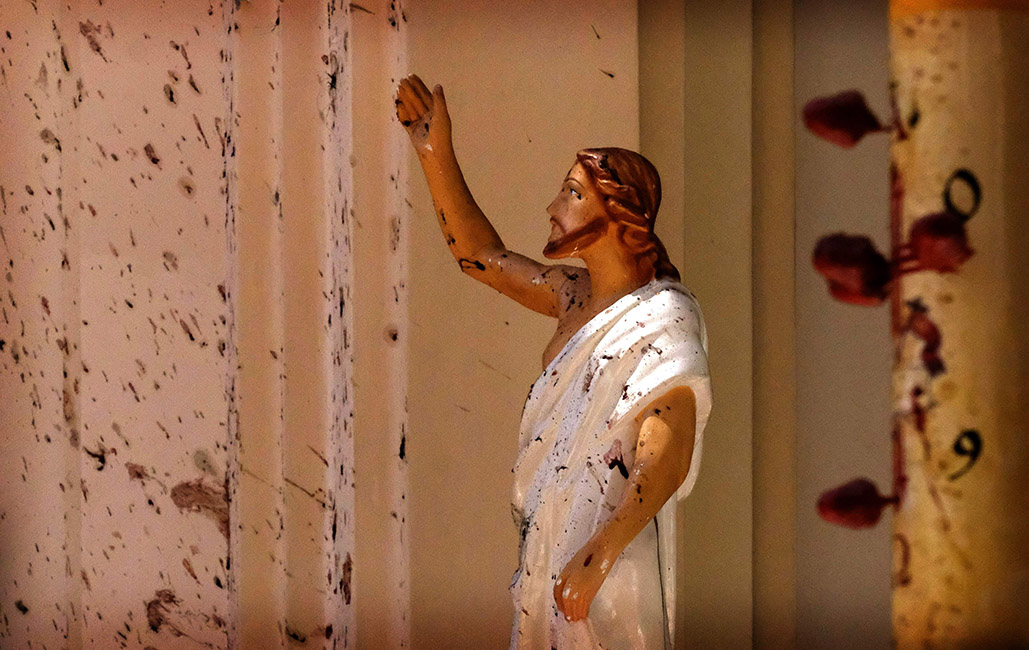
Sri Lanka attacks mark the birth of the Terrorism 3.0
Until the other day, few Americans could likely find Sri Lanka on a map, nor even dimly remember its British colonial name, Ceylon. But the Indian Ocean nation flashed across news screens over the Easter weekend with a highly sophisticated and lethal series of bombings across the island nation of some 20 million. The attacks were probably inspired, encouraged and possibly assisted by the so-called Islamic State, and — on a population adjusted basis — amounted to a 9/11 level attack on a multicultural and multireligious state, killing more than 320 people thus far across nine sites with hundreds more wounded.
The attacks were conducted with suicide bombers and improvised explosive devices, executed at a level that seems far beyond the capabilities of the Sri Lankan radical Islamic splinter group Nations Thawahid Jaman that has claimed responsibility. Previously, the group had specialized in comparatively benign defacement of Buddhist statues (70 percent of Sri Lankans are Buddhists). The idea that this organization could suddenly plan and conduct a nationwide, precisely timed series of nine bombings seems highly unlikely. Thus suspicion grows that ISIS was involved at an operational level — a modus operandi associated with their increasing globalization.

St. Sebastian's Church in Negombo, Sri Lanka, after the bombings. Photographer: Ishara S. Kodikara/AFP, via Getty Images
Welcome to Terrorism 3.0. A way to think about the evolution of global terrorism is a bit like new computer software releases — improving over the decades. Terrorism 1.0 in the modern era was in the 1980s — Red Brigades of Italy, Baader-Meinhof gang of Germany, Sendero Luminoso of Peru and the Palestinian Liberation Organization, among others. They were disconnected and nationally focused by and large.
Terrorism 2.0 emerged after the fall of the Berlin Wall, and is embodied by the rise of radical groups including al-Qaeda, Al-Shabab, Boko Haram — essentially regional groups with sporadic international reach. In Terrorism 3.0, we see the Islamic State — a globally dispersed, highly lethal, financially capable, deeply innovative organization. While the West has been able to compress its occupation of territory, effectively knocking it out of a geographical caliphate in Iraq and Syria, it has morphed into an internet-based organization that continues to conduct highly sophisticated attacks and establish cells across the globe.
In a business context, the Islamic State is like an international conglomerate that has untethered itself from the costly, time-consuming business of operating retail bricks and mortar. A global map showing ISIS inspired or conducted attacks is revealing, far beyond anything al-Qaeda has managed. And, no question, it will continue to conduct lethal attacks, seeking over time to obtain weapons of mass destruction — chemical, biological, radiological and cyber.
Even as the U.S. has begun to pivot away from counter-terrorism operations to face new challenges in global great-power politics from China and Russia, the Islamic State has no intention of calling a timeout or ceasing operations despite the loss of its territory. So the question remains how America and its allies in Europe and beyond address this ongoing threat, recognizing — as the newest U.S. National Security Strategy does — that more resources must be devoted to “high end” potential conflict with near-peer competitors like China and Russia.
In order to deal effectively with the ever-more ambitious groups and their emerging internet-based strategy, we will need three key lines of effort. The first is to continue to internationalize the fight against the Islamic State. The coalition against ISIS has over 70 nations and international organizations participating at one level or another, and was a legacy of the Obama administration picked up by the Trump team. Unfortunately, the key architects — retired General John Allen and diplomat Brett McGurk — have both been discarded by Trump. We need to appoint new professionals to guide this effort, and for the U.S. to reassert itself as the leader. The message to the international community should be the kinetic victory in Syria is not “mission accomplished,” but rather signals a need to redouble our efforts at coordinating and sharing intelligence to respond to moves by ISIS.
Second, we will need a better level of interagency cooperation, particularly in intelligence, military action, diplomacy, and developmental activities (USAID and other governmental groups). Our efforts are still highly stove-piped in terms of counter-terrorism. The National Counter-terrorism Center is a good interagency fusion cell, but needs more real convening and operational power to be truly effective. A good start here in the U.S. would be developing a national strategy to eliminate the Islamic State and other affiliated global terror organizations, written and executed in parallel to other official strategies like homeland security, cybersecurity and missile defense.
A third key ingredient is private-public cooperation. This includes working, and sharing intelligence to some degree, with private nongovernmental organizations such as Interpol, the Red Cross and Red Crescent, Doctors Without Borders, Operation Hope and other entities that try to address base conditions of poverty and disease that help create recruiting opportunities for terrorist organizations. It also includes working with the tech giants — notably Google, which has done signal work in this space — on depriving terror organizations of access to the social networks. A new book by Peter Singer and Emerson Brooking, “Like War: The Weaponization of the Social Networks,” outlines this well.
Terrorism 3.0 will continue to spread like a global cancer, enhanced by the accelerative power of the internet. We need not only classic hard-power solutions as we saw in Syria and Iraq, but a combination of other 21st-century tools as well if we are to contain and eventually conquer it.
(James Stavridis)
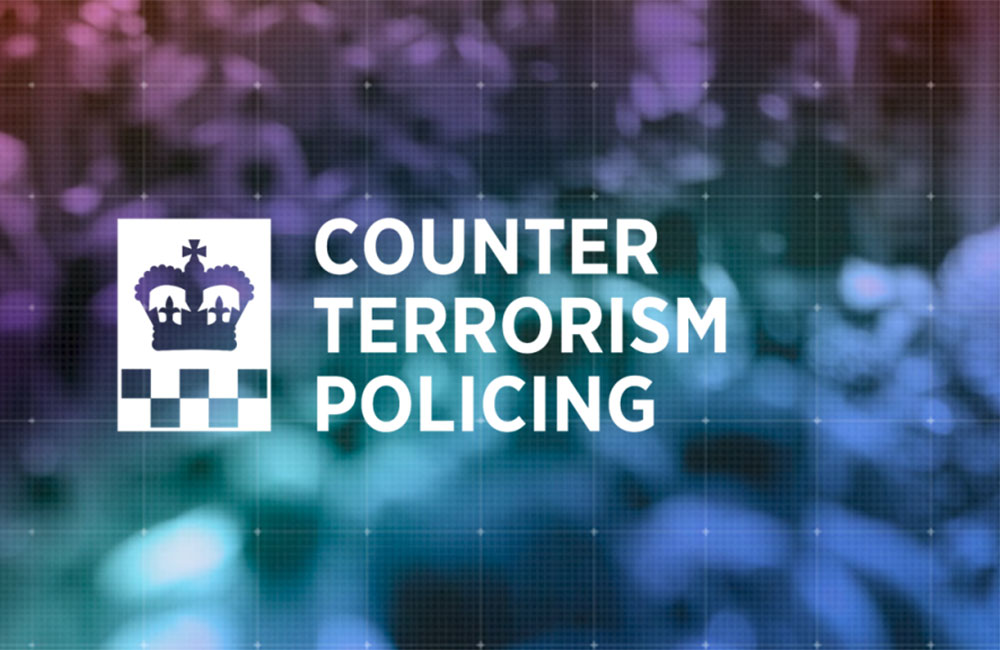
UK dispatches counter-terrorism police to Sri Lanka
Britain has sent a team of counter-terrorism police to Sri Lanka after the deadly bombing attacks that killed at least 359 people, including eight Britons, on Easter Sunday.
Foreign Secretary Jeremy Hunt said family liaison officers had been sent to Sri Lanka to support and assist the families of British victims and help with repatriation of their bodies.
“The attack was complex, tightly co-ordinated and designed to cause maximum chaos, damage and heartbreak,” Mr Hunt told MPs in the House of Commons on Tuesday.
“The UK will never stand by in the face of such evil, so today we stand in solidarity with the government and people of Sri Lanka, who have been making enormous strides towards stability and peace after the conclusion of the civil war almost 10 years ago.”
Mr Hunt spoke with Tilak Marapana, the Sri Lankan Minister of Foreign Affairs, on Monday evening to offer his condolences and the UK’s assistance with the investigation.
After eight explosions ripped through hotels and churches across the country, an improvised pipe bomb found on Sunday evening was destroyed by security services at Colombo airport.
Mr Hunt said that the device was probably meant to harm fleeing civilians.
British Prime Minister Theresa May spoke to Sri Lankan leader Ranil Wickremesinghe earlier on Tuesday. Mrs May stressed the UK’s solidarity with the people of the South Asian nation.
“The leaders discussed the strong connection between the UK and Sri Lanka, and the need to stand together in the fight against terrorism,” a Downing Street spokesman said.
“Prime Minister Wickremesinghe expressed his gratitude for the UK’s support.”
Mr Hunt spoke of religious persecution, referring to the Christchurch mosque attacks during Friday Prayer on March 15, where 50 people died and 50 were wounded.
“We must respond by bringing people together – the exact opposite of what was intended by the perpetrators,” he said.
Ruwan Wijewardene, Sri Lanka’s Minister of State for Defence, said that preliminary investigations into the bombings suggested that they were in retaliation for the Christchurch attack.
ISIS on Tuesday claimed responsibility for the attacks, without providing evidence.
But Mr Wickremesinghe said the terrorist group might have been linked to the attack.
On Sunday, Mr Hunt called the Sri Lanka attacks “wicked” and said everyone had a right to practise their faith in peace, safety and security.
“These despicable acts were carried out at a time when millions of Christians celebrate Easter while living under the shadow of persecution," he said.
"Many gather in churches at risk of attack. Countless more will have suffered threats or discrimination."
(The National)
Page 328 of 510
